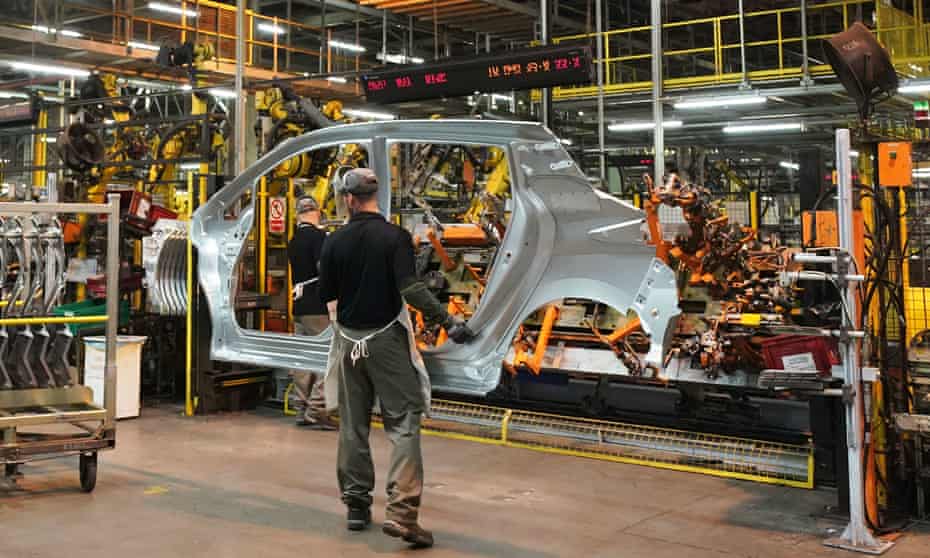UK economy slows more than expected as car production slumps
GDP rose by 0.1% in February, down from 0.8% in January, says ONS, after City economists had predicted 0.3%

UK growth slowed more than expected in February amid a slump in car manufacturing, despite a sharp recovery in overseas holiday bookings after the easing of Covid restrictions.
The Office for National Statistics said gross domestic product rose by only 0.1% in February, down from a monthly growth rate of 0.8% in January when the economy was recovering from the coronavirus Omicron variant.
City economists had forecast a monthly growth rate of 0.3%. Overall, the economy was 1.5% bigger than its pre-pandemic level in February.
Raising questions over the strength of the economy before Russia’s invasion of Ukraine in late February, manufacturing slumped as car producers continued to struggle with sourcing parts amid global supply chain disruption and shortages of vital components.
Activity in the sector fell 0.4% on the month, driven by a 5.4% drop in the manufacture of transport equipment and a 4.3% fall in computer, electronic and optical products where disruption to the availability of microchips has hit production volumes around the world.
Tourism rose sharply after the easing of pandemic restrictions led to an increase in people booking holidays in the UK and overseas, with growth of 33.1% for travel agencies and tour operators. Hotels recorded a 23% rise in activity as more people travelled across the UK, contributing to the first month of positive growth for hotels and camping grounds since August.
However, growth in the services sector of the economy slowed amid a drop in the health sector, largely reflecting a fall back from high levels in the NHS test-and-trace and vaccination programmes in December and January when Omicron was at its peak.
Some businesses said disruption from the storms Dudley, Eunice and Franklin during the month had hindered trade, including in the building industry, restaurants and takeaways, hairdressing and beauty and leisure parks and holiday centres. Some companies reported a positive impact, such as those in fencing, torch sales and temporary off-grid power.
Business leaders warned the economy was likely to struggle in future months as soaring inflation damages consumer spending power.
Suren Thiru, the head of economics at the British Chambers of Commerce, said the government needed to provide more financial support to companies and businesses to deal with rising cost pressures.
“February’s slowdown is likely to be the start of a prolonged period of considerably weaker growth as rising inflation, surging energy bills and higher taxes increasingly damages key drivers of UK output, including consumer spending and business investment,” he said.